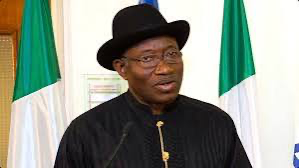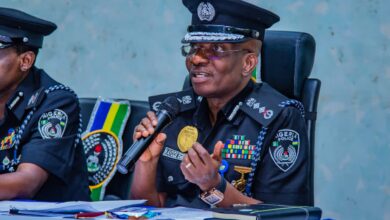EXPLAINER: What Does the Law Say About Goodluck Jonathan’s Eligibility to Run for Nigeria’s Presidency?

BY: Ajibola Osungbohun
On December 9, 2024, an X (formerly Twitter) user, @Onsogbu, posted a tweet stating, “Dear Ob!diots, Former President Goodluck Ebele Jonathan CANNOT run for the presidency of Nigeria ever again.” This claim sparked widespread debate online about the former president’s eligibility to contest future presidential elections in Nigeria.
Goodluck Jonathan, Nigeria’s former president, assumed office on May 6, 2010, following the death of President Umaru Musa Yar’Adua. He completed Yar’Adua’s remaining term and subsequently announced his candidacy for the 2011 presidential election. In April 2011, he was declared the winner, securing a full four-year term after an election that later triggered violent riots in some parts of the country.
Jonathan, who served a full term from 2011 to 2015 and sought a second term but lost to Muhammadu Buhari, accepted defeat and did not go to court to challenge the election results, which were dubbed the first peaceful transfer of power between political parties in Nigerian history.
In preparation for the 2023 general elections, there was speculation that the former President would run for president when some young northerners known as a “group of pastoralists and Almajiris,” led by Ibrahim Abdullahi, picked up expressions of interest and nomination form on his behalf.
Ahead of the 2027 general elections, there are speculations that some groups are already tipping the former president for the highest position in the country. As a response to the political underground permutations, some individuals who oppose the idea have claimed that Goodluck Jonathan is no longer eligible to contest in the country as president.
As Jonathan’s eligibility to run for the presidency continues to cause political and legal debates. We investigate the stand of the law on whether President Jonathan is permanently ineligible to contest Nigeria’s presidency again.
CONSTITUTION OF THE FEDERAL REPUBLIC OF NIGERIA, 1999 (fourth alteration, no. 16)
Section 137(3) of the Constitution
‘A person who was sworn in to complete the term for which another person was elected as President shall not be elected to such office for more than a single term.’
Hence, what are the legal interpretation of this section of the constitution, legal professionals were consulted.
LEGAL REACTIONS
The legal community was divided with lawyers like Femi Falana (SAN), Prof. Mike Ozekhome (SAN), Human rights lawyer, Mr Femi Falana, has argued that former President Goodluck Jonathan cannot contest in the 2023 presidential election, citing constitutional provisions that have barred the ex-president from seeking re-election. In his argument, President Goodluck Jonathan was the President of Nigeria in 2010 following the sudden death of President Umaru Yar’adua, Yaradua and later contested and won the 2011 presidential election. Also, he has spent five years in office as President which would make it nine years in office if he contests and wins again, which means he spent a cumulative period of nine years as President of Nigeria as against the Section 137 of the Constitution which provides for a maximum two terms of eight years.
Furthermore, he cited The National Assembly introduced constitutional provision via the Fourth Alteration No 16 Act 2017 which President Muhammadu Buhari signed into law on June 4, 2018, that the constitutional provision signed into law in 2018 can retroactively apply to Mr Jonathan who had left office after his failed reelection bid in 2015.
In another reaction Mike Ozekhome, human rights lawyer, opined that antagonists of Jonathan running in 2022, in their strange line of argument, are mainly relying on the above section 137(3) that was signed into law in 2018, three years after Jonathan had left office and can’t be used in retrospect.
Emphasing that it will be grossly unfair, unconstitutional, unconscionable and inequitable to deny Jonathan of the right to contest the 2023 presidential election when our extant laws and appellate court decisions permit him to.
JUDICIAL PRECEDENCES
According to a report published by The Guardian newspaper dated 3rd March, 2015 , revealed a judgement made by an appellate court that President Goodluck Ebele Jonathan was qualified to run for the forthcoming presidential race stating that he had only taken the oath of office as President once in 2011 which made him eligible.
The judgement, which was delivered in an appeal was filed on April 16, 2013, by Cyracus Njoku, ruled in favour of President Goodluck Jonathan in a unanimous verdict of a five-man panel, where the Court of Appeal held that Jonathan could not be said to have taken the Oath of office as President twice because he became President after the death of the then President, Alhaji Umar Musa Yar’Adua, not through election, but by mere constitutional provision.
Thus, the court held that the process that produced Jonathan as President in 2010 was not an election process, but through constitutional provision because no single vote was given to him and that he is eligible to contest for his remaining term in office if he so wishes.
In another judgement delivered by a Federal High Court published by Nigeria Lawyer, an online news platform that reports matters coming in and out of bar and bench on 27th May, 2022, reported a judgement delivered by the Federal High Court sitting in Yenagoa, Bayelsa State presided by Justice Isa Hamma Dashen, said that President Goodluck Jonathan has the right to vie for the office of the president again and that any law can not stop him and he thereby dismissed the case.
The judge further stated also that the swearing-in of President Goodluck Jonathan in 201o after the death of President Umar Yar’dua was a constitutional provision. Therefore, he ruled out that there was no election conducted in Nigeria in 2010 and President Jonathan can’t be said to have been sworn in the year that Nigeria was not recognised for conducting elections.
Finally from our finding there is no petition filed against the eligibility of President Goodluck Jonathan at the supreme court as the highest court in Nigeria.
CONCLUSION:
Goodluck Jonathan is eligible to contest Nigeria’s presidency, as court rulings have affirmed his constitutional right despite past debates on term limits.




